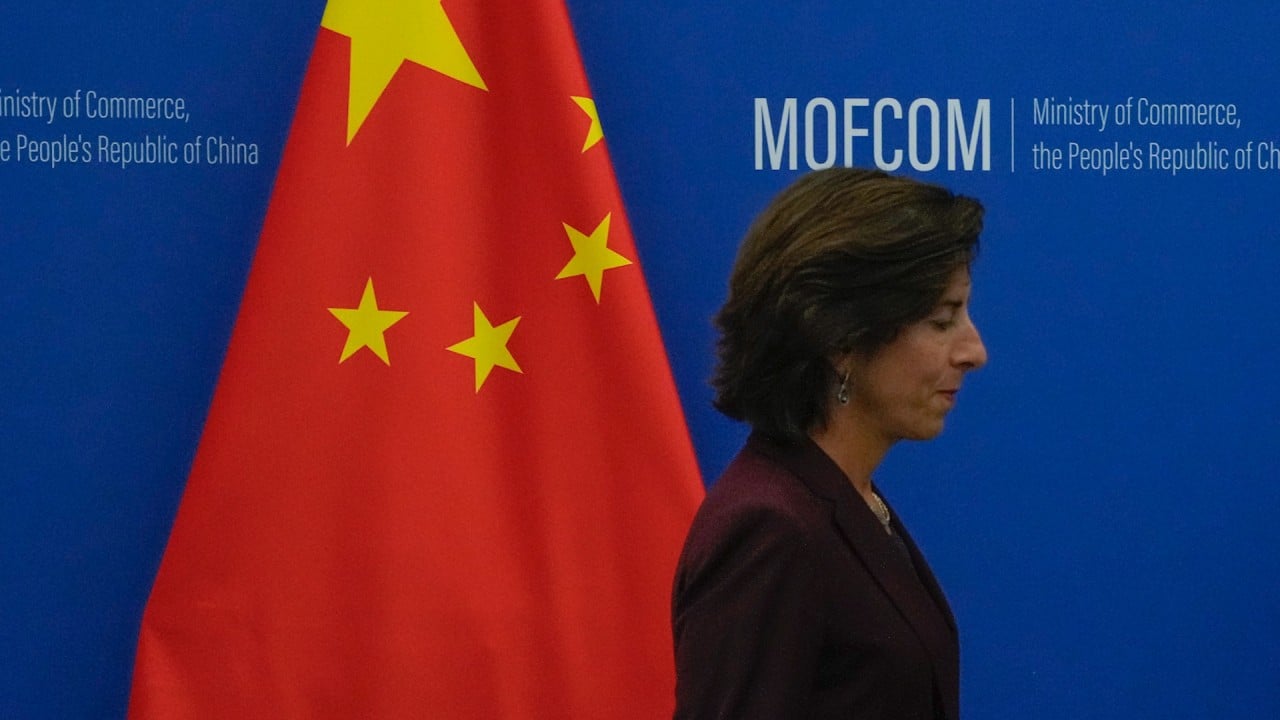As Gina Raimondo wraps up Beijing leg of China trip with high-level meetings, will it be a litmus test for relations?
- US Commerce Secretary Gina Raimondo meets China’s No 2 official, Li Qiang, and calls for collaboration with China on AI, climate change and the fentanyl crisis
- The first US-China commercial, trade and investment working group of Joe Biden’s presidency is set up after Raimondo met Chinese counterpart Wang Wentao

03:03
US-China relations depend on strong economic ties, says US commerce chief during talks in Beijing
Chinese Premier Li Qiang called on the United States Tuesday to take sincere and concrete moves to improve economic relations after the two countries agreed to set up new groups to manage trade conflicts.
During a meeting with the visiting US Commerce Secretary Gina Raimondo, Li also said that only through dialogue could both sides “learn about each other’s concerns and find a middle ground”.
“Sound economic relations and trade cooperation will not only be beneficial to our two countries, but to the whole world,” he told Raimondo, according to Phoenix TV. And the premier reportedly described trade relations between the US and China as their “ballast stone and stabilising anchor”.
China is ready to engage, work and cooperate with the US on trade and investment, a Chinese readout underscored later in the day. Failure to do so would have a “disastrous impact on the global economy”, it warned, before adding: “It is hoped that the United States will meet China halfway.”
Raimondo said that the US wants to work with China on issues including climate change, artificial intelligence and curbing the fentanyl crisis, according to US readouts of the meetings, adding that the US does not intend to hold back China’s economic growth.
Raimondo also met Vice-Premier He Lifeng on Tuesday during her second full day of talks with senior officials in Beijing and called on China to address what she termed unfair subsidies, bias toward foreign companies and weak intellectual property protections.
